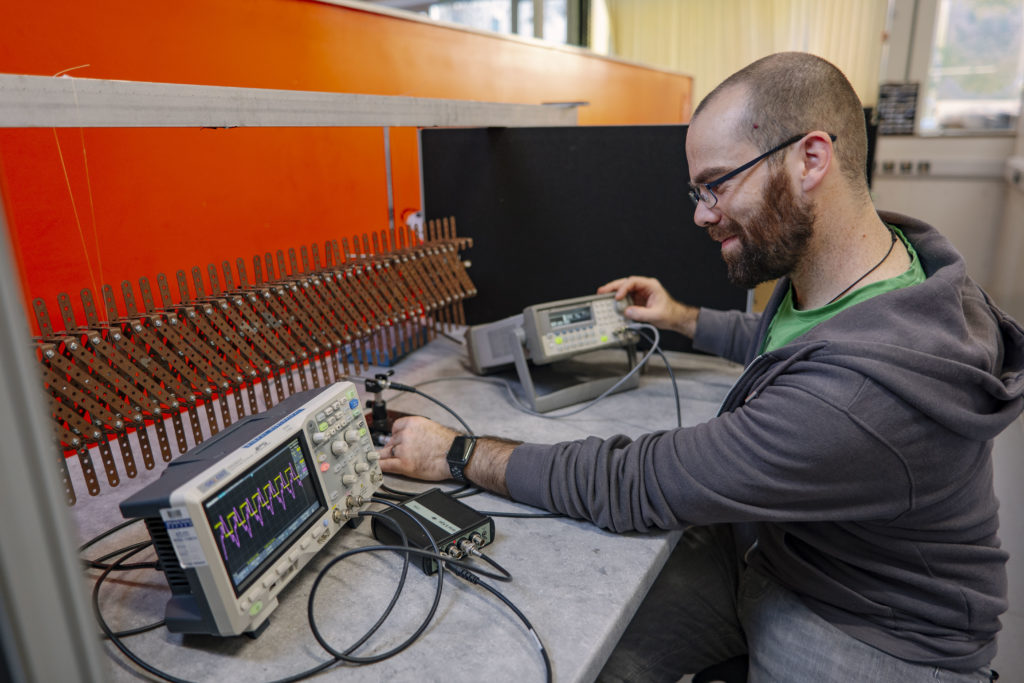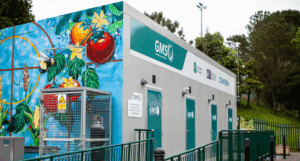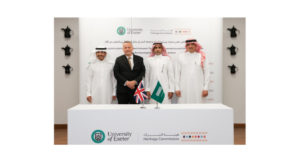Research to build next generation of metamaterials receives multi-million pound funding boost

Exeter will play a pivotal part in a new collaboration to lead new research into manipulating metamaterials in the fourth dimension: time.
The University of Exeter will play a pivotal part in a new collaboration to lead new research into manipulating metamaterials in the fourth dimension: time.
Experts from Exeter’s Centre for Metamaterial Research and Innovation (CMRI) will play a key role in a new consortium, called Meta4D, to study the manipulation of waves, such as light waves or acoustic waves, using tailored metamaterials that vary in time instead of space.
Metamaterial are traditionally structured from at least two different materials, and so gain technologically useful properties that impossible to achieve without that structuring. Innovations to date that have exploited this concept have included technology relevant to communication, imaging, health and defence.
The consortium is led by Professor Richard Craster at Imperial College, and his team will be working alongside the Exeter team, and researchers from Kings College. The project has received £7.7 million funding from the Engineering and Physics Sciences Research Council (EPSRC).
Professor Craster said: “I am delighted by the opportunity this funding provides for us to explore the boundaries of what’s possible, the chance to shape the future of wave physics, and excited to work with our partners and bring together experiments and theory to coherently tackle the research challenge.”
Professor Simon Horsley, one of the key academics from the Exeter team, said: “This is a fantastically exciting new project in physics and mathematics where we really don’t know what the possibilities and outcomes will be – and that’s the best type of project to be involved in.
“With our world-leading collaborators at Imperial and Kings, and our industry partners, we’ve got 5 years to explore the science and the generation-after-next technology that will undoubtedly emerge from 4D metamaterials.”
Professor Riccardo Sapienza, coordinator of the grant said: “This is the new frontier of metamaterials – studying how we can control the temporal dimension of waves”. The project has industry partners, Snap, BT, PepsiCo, Met Materials Inc and Airbus, and Professor Sapienza believes that the Meta4D research will be key to their interests, “We could unlock a new degree of freedom to control and process information,” he said.
Spatial reflections occur when a wave hits a boundary in space, which is why you hear echoes as sound bounces off walls or see your own reflection as light bounces of a mirror. By considering time as the fourth dimension, we can think about what happens when a material in which a wave is travelling in abruptly (i.e. in time) changes it properties: a phenomenon known as a time reflection can occur.
Such energy that ‘reflects in time’ does not change its direction, but instead changes its frequency and energy. Ultimately by fabricating a metamaterial with structure in time and space, its possible to gain complete control of waves, such as direction, energy, reflection, speed, and colour.
Professor Alastair Hibbins, lead of the EPSRC funded UK Metamaterials Network, and also part of the Meta4D leadership team, said “Our 700-member strong Network has the ambition to drive the development of a well funded, self-sustaining and world-class metamaterials-enabled UK ecosystem, to the benefit of the UK’s prosperity and security.
“We’ve been working hard over the past few years to demystify metamaterials and grow the nation’s research collective efforts and investment in this area, so its fantastic to see this funded, not just for the immediate team, for the UK as a whole: its certainly one of the biggest single investments in metamaterials the UK, and confirms the UK’s science superpower status in this area.”



